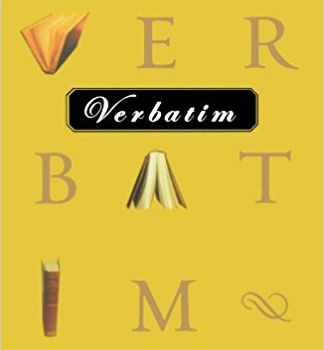Sol Saporta
University of Washington (retired)
In lectures delivered in Japan in 1987, Noam Chomsky discussed the notion of a ‘conceptual framework’ which he proposed as ‘a common human property’ He suggested that ‘the concepts . . . are available, independently of experience [and are] associated with (or labeled by) words in a human language.’ (“Language in a Psychological Setting,” Sophia Linguistica, Working Papers in Linguistics, p. 22, 1987)
Of some interest in this connection, is the phenomenon of semantic holes, i.e., concepts which are clearly defined, but for which there seem to be no labels, or at least no simple one-morpheme words. The most familiar is the absence, at least in English, for a word for unmarried sexual partners, living together. (A colleague writes that his university is seriously considering adopting the term ‘spousal equivalent.’ The caricature has now become the reality.)
It is apparently the case in English, and the very few other languages with which I am familiar that there are only two words for concepts, based on the relationship to a person who has died, namely the words widow/widower and orphan. In other words, the death of a spouse, or of a parent is generally labeled, but the death of a child or a sibling is not. (The word orphan, incidentally, is age-based; only children can be orphans.)
A generation ago, linguists were infatuated with the Whorfian hypothesis that suggested that each language served as a grid on the world. A semantic hole such as this one would surely have been anomalous. That it would be universal would be inexplicable. It is hard to imagine a greater emotional impact than the death of a child. How could a culture ignore such an obvious linguistic need?
The explanation is not obvious. A lawyer friend tells me that in both criminal and civil cases, the courts routinely refer to ‘surviving parents,’ which suggests that legal considerations may in fact be relevant. Widows and orphans have legal rights that require precise resolution, surviving parents and siblings less so, So it seems that semantic holes in general, and this one in particular, bear on general theoretical questions of some interest.
Submit your review | |

